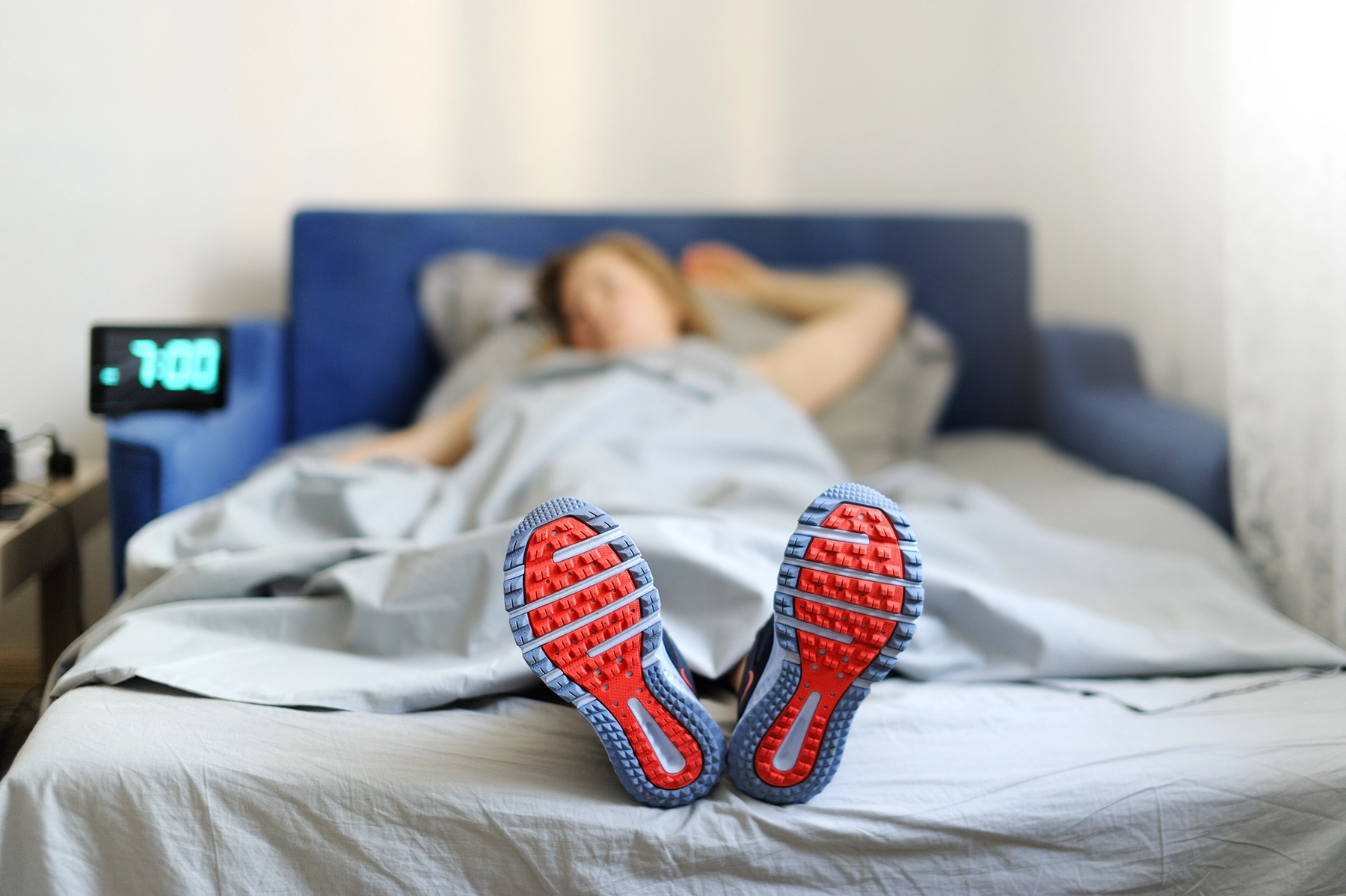Does Exercise Improve Your Sleep?

If you struggle with sleep, you need to hear what Alberto Ramos, M.D., has to say.
“It seems that cardiovascular exercise, walking, jogging, and cycling improve sleep onset latency and the amount of deep sleep. Several studies also show that resistance training and yoga improve sleep,” says Dr. Ramos, a sleep neurologist at the University of Miami Health System and director of the Sleep in Neurocognitive Aging and Alzheimer’s Research (SANAR) lab.
What is sleep onset latency?
Sleep onset latency refers to the length of time it takes for you to doze off once you turn off the lights.
It makes sense. Our bodies were made to move. However, far too many of us spend more time sitting than moving. By walking, jogging, or cycling, we release stress and tension, and through yoga, we allow our bodies and tight muscles to relax.
One review of scientific studies concluded that regular resistance training improves all aspects of sleep, with the greatest benefit for sleep quality.
Dr. Ramos sees the advantages of physical activity in his patients.
“I’ve had several patients who have lowered their dose of sleep medication or use it less frequently by using exercise in combination with behavioral therapies, such as cognitive behavioral therapy for insomnia.”
Sound advice for sound sleep
“Combination” is key.
Chronic insomnia often requires seeing a physician and more than one approach. You may have tried various aids – from pills to special pillows, meditation to melatonin. Physical activity needs to be part of your solution, but it can’t overcome bad habits.
“Exercise can’t compensate for excessive caffeine – that includes sodas and chocolate. Restrict caffeine to the morning hours; avoid the late afternoon and evening,” Dr. Ramos says.
Though power naps improve brain function, Dr. Ramos advises limiting them to no more than 30 minutes. Also, avoid eating too close to bedtime and drinking too much alcohol. Shut off electronics two to three hours before bed and maintain a regular bedtime/waking schedule, even on weekends.
Another helpful habit is getting out in natural light early in the day.
“Natural light is the main mechanism we use to entrain our internal clock to keep us alert during the day and allow us to fall asleep 12 or 16 hours later,” Dr. Ramos says.
For that reason, make it a habit to expose yourself to natural light as early as possible after waking.
You can exercise your way to better sleep, but the type and timing of the workout are important.
“It is generally recommended to avoid vigorous exercise close to bedtime, as it can increase your heart rate, body temperature, and adrenaline levels, which may make it harder to fall asleep. We need a lower core body temperature to fall asleep and stay asleep.
A higher core body temperature too close to bedtime can delay this ‘cooling-off’ process and make falling asleep and staying asleep at our desired time more difficult,” Dr. Ramos says.
Similarly, most sleep experts advise adults to keep their bedroom temperature between 60 and 67 degrees.
Although everyone is different, Dr. Ramos recommends avoiding exercise three hours before bedtime.
These require discipline, but it’s worth the effort if you wake up refreshed and ready to tackle the day.
“Sleep is a pillar of health, similar to physical activity and nutrition. If you want to have a long healthy life, then proper sleep has to be part of that equation; it is extremely important for your brain, as well as your emotional, and cardiovascular health.”
Nancy Moreland is a regular contributor to the UHealth Collective. She has written for several major health care systems and the CDC. Her writing also appears in the Chicago Tribune and U.S. News & World Report.
Tags: amount of sleep, Dr. Alberto Ramos, healthy sleep habits, rem sleep, sleep debt
